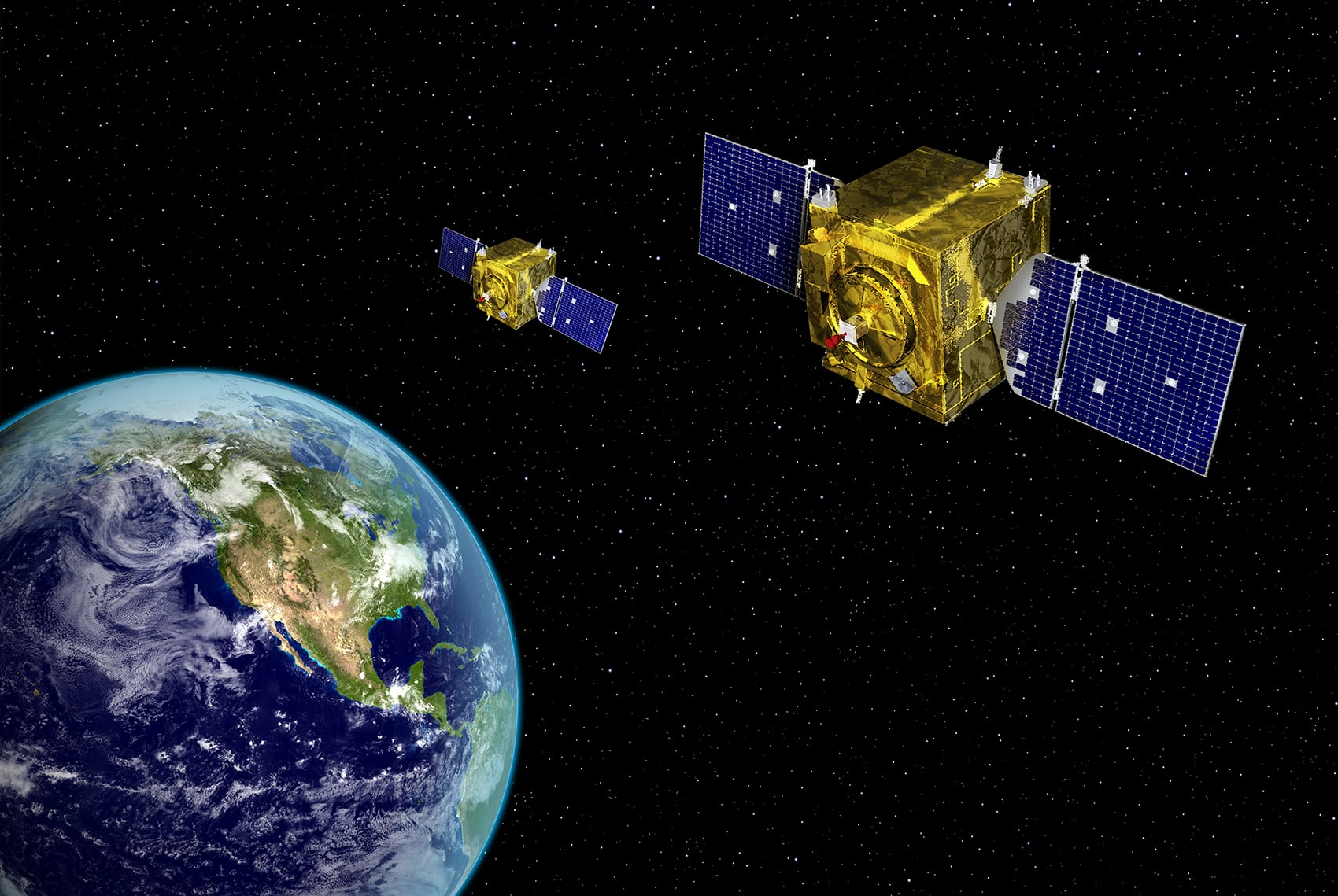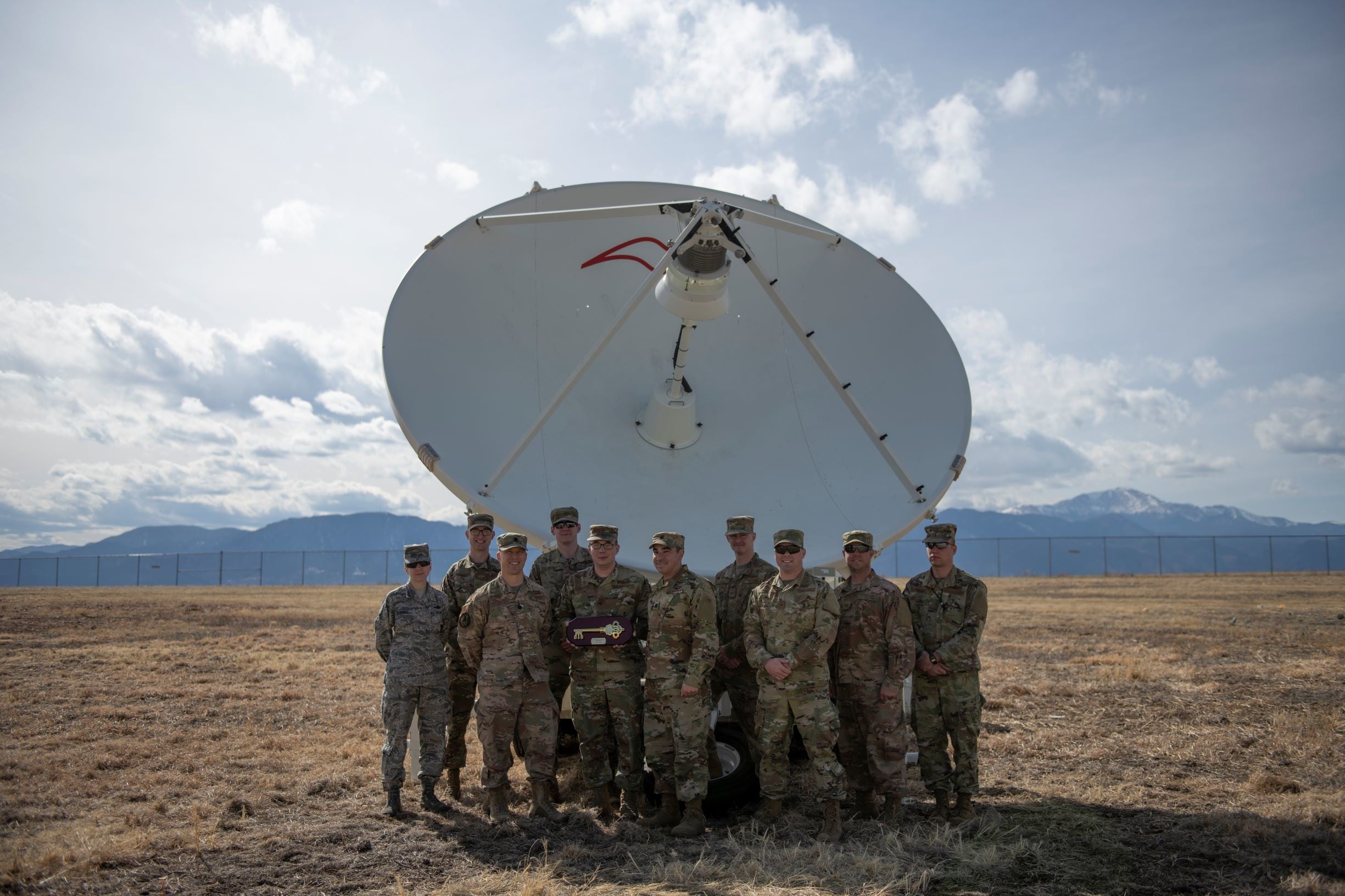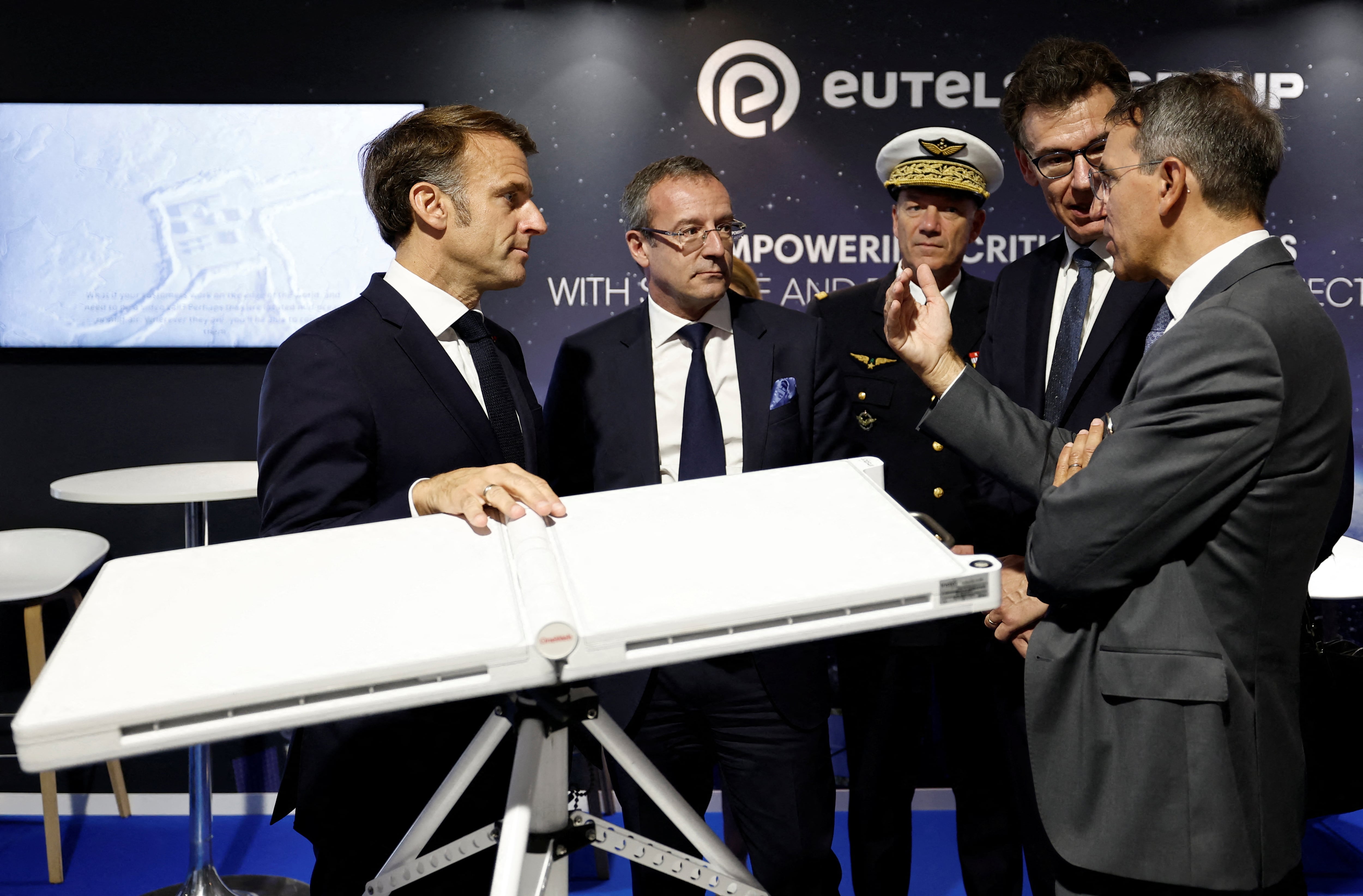WASHINGTON — U.S. Space Command says that Russia tested an anti-satellite weapon on orbit July 15, continuing a series of aggressive actions that nation has taken in space.
According to a July 23 SPACECOM statement, Russian inspector satellite Cosmos 2543 released another object into space in proximity to another Russian satellite, an action inconsistent with its stated purpose. U.S. officials have suggested in the past that such an object could be used as a high-speed projectile weapon to attack other satellites.
"The Russian satellite system used to conduct this on-orbit weapons test is the same satellite system that we raised concerns about earlier this year, when Russia maneuvered near a U.S. government satellite," said Gen. John "Jay" Raymond, SPACECOM Commander and U.S. Space Force Chief of Space Operations. "This is further evidence of Russia's continuing efforts to develop and test space-based systems, and consistent with the Kremlin's published military doctrine to employ weapons that hold U.S. and allied space assets at risk."
RELATED

The non-destructive test is similar to past Russian space activities, when Russia satellites eject a smaller object from an on orbit satellite. The most well documented example occurred in 2017, when Russian inspector satellite Cosmos 2519 deployed a sub-satellite named Cosmos 2521.
“What happened next is the disturbing part,” recounted Assistant Secretary of State for International Security and Nonproliferation Chris Ford in April 2020.
“The sub-satellite (...) launched an additional object into space — Cosmos 2523—at the high relative speed of about 250 km per hour,” he explained. “I don’t want to put too fine a point on it, but Cosmos 2521 demonstrated the ability to position itself near another satellite and to fire a projectile.
The apparent ability of these Russian satellites to fire projectiles has been a source of concern for American defense officials, especially as those satellites have maneuvered close to U.S. government satellites. Launched in November and December 2019, Cosmos 2542 and Cosmos 2543 — the satellite involved in the alleged July 15 anti-satellite test — have actively maneuvered near U.S. government satellites operating in low Earth orbit.
The U.S. State Department first raised concerns about these types of activities at the United Nations Conference on Disarmament in 2018. The State Department has further noted that these satellites displayed characteristics of a space-based weapon and Russia’s behavior is hypocritical and concerning. In a statement with SPACECOM, Ford reiterated his view that Russia’s on orbit activities undermine their advocacy for arms control agreements governing outer space.
"This event highlights Russia's hypocritical advocacy of outer space arms control, with which Moscow aims to restrict the capabilities of the United States while clearly having no intention of halting its own counterspace program--both ground-based anti-satellite capabilities and what would appear to be actual in-orbit anti-satellite weaponry," said Ford, who is currently performing the duties of the Under Secretary for Arms Control and International Security.
Under Raymond’s leadership, the less than year-old SPACECOM has been quick to call out what it considers aggressive Russian actions in space. When Russia conducted a direct ascent anti-satellite missile test April 15, Raymond took the opportunity to declare that “the threats to U.S. and allied space systems are real, serious and growing.”
RELATED

And on June 17, the Pentagon put forward a new Defense Space Strategy designed address the growing counter-space efforts of Russia and China.
“China and Russia have weaponized space and turned it into a war-fighting domain,” Deputy Assistant Secretary of Defense for Space Policy Stephen Kitay said during a June 17 press call. “Their actions pose the greatest strategic threat with ongoing development, testing and deployment of counter-space systems and the associated military doctrine designed to hold allied and U.S. space systems at risk.”
SPACECOM continued in that vein in the July 23 statement, noting that Russian aggression in space highlights the importance of establishing the unified combatant command and the Space Force.
“The United States, in coordination with our allies, is ready and committed to deterring aggression and defending the Nation, our allies, and vital U.S. interests from hostile acts in space,” Raymond concluded.
Nathan Strout covers space, unmanned and intelligence systems for C4ISRNET.








